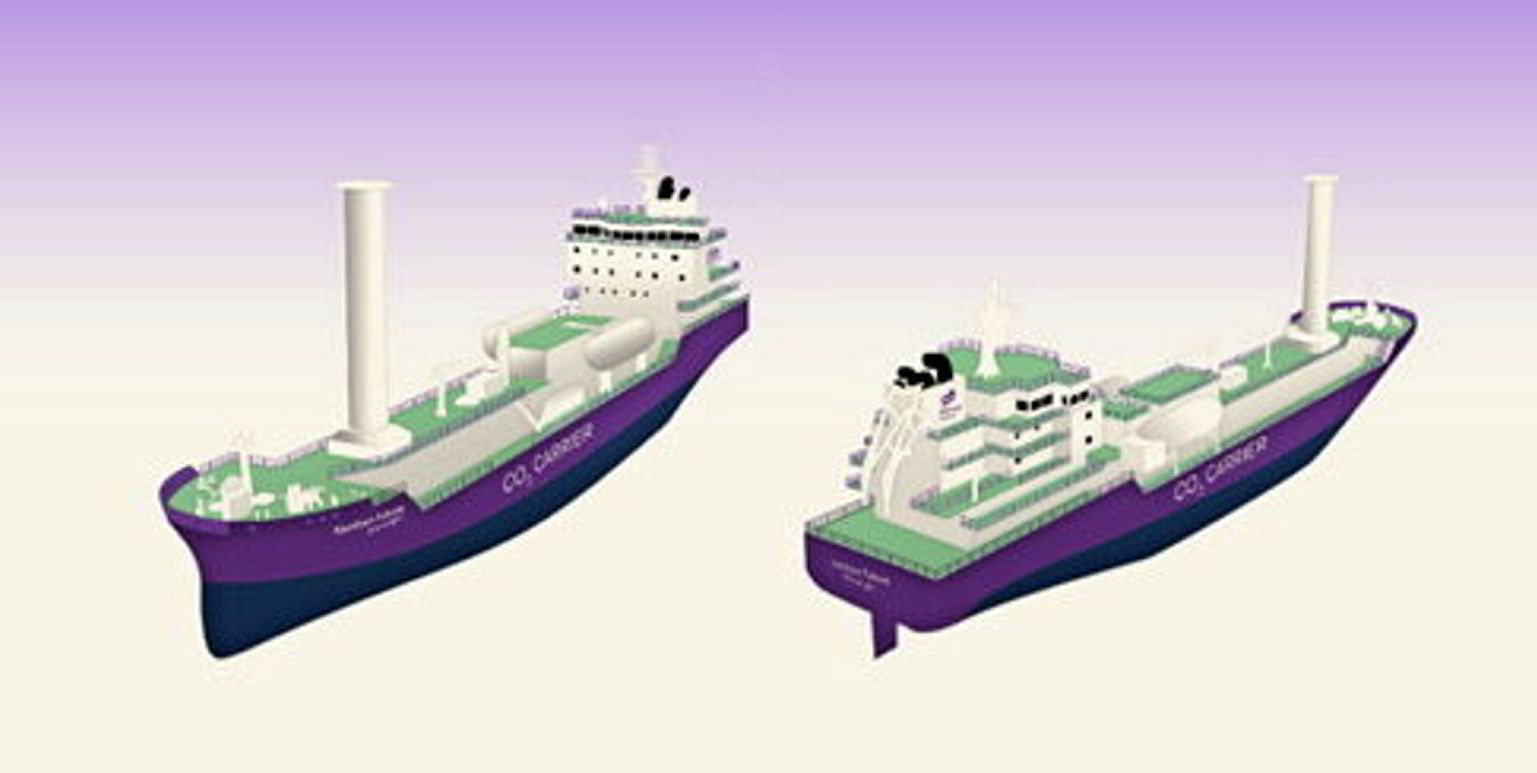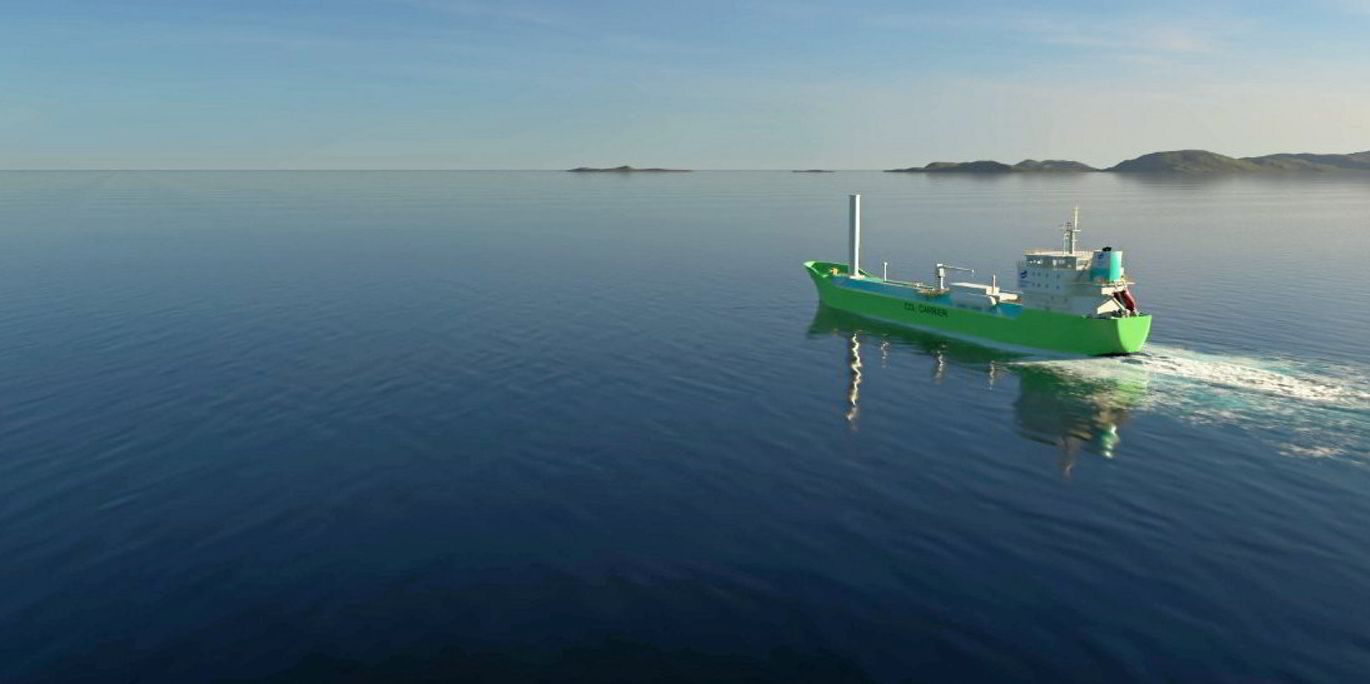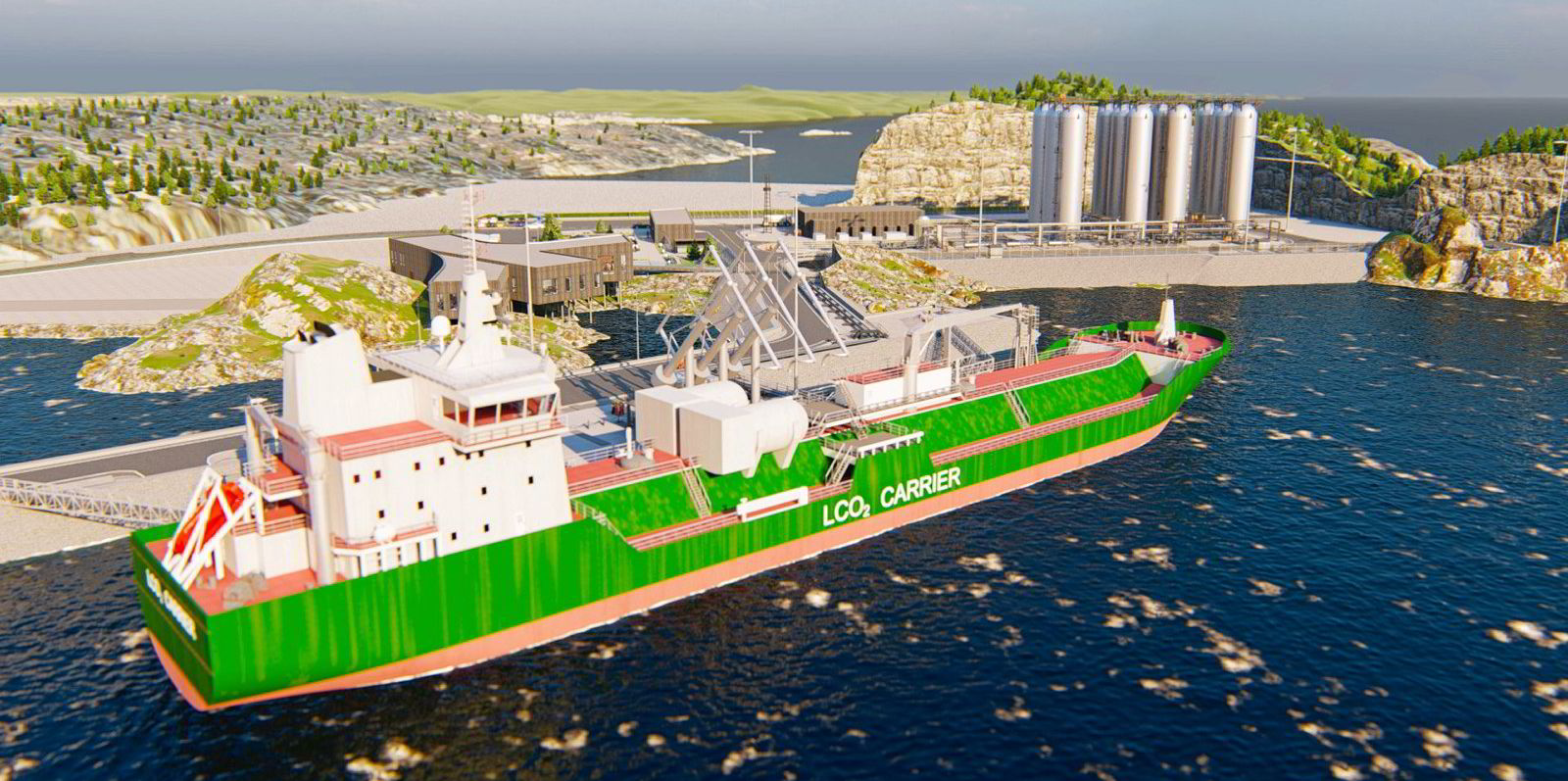K Line will charter the two pioneer 7,500-cbm liquefied carbon dioxide (LCO2) carriers that the emerging carbon capture and storage joint venture Northern Lights JV DA is building in China.
The Japanese shipping giant said on Monday that it would take the pair on long-term bareboat charter once they are delivered by Dalian Shipbuilding Industry Co in 2024 in a move that will see it become a participant in the world’s first full-scale carbon capture and storage value chain.
Both ships will be managed by London-based subsidiary K Line LNG Shipping (UK) and transport LCO2 from industrial emitters, including the Norcem Brevik and Hafslund Oslo Celsio carbon capture facilities, to the Northern Lights CO2 receiving terminal in Oygarden, Norway.
Northern Lights and K Line will jointly establish operational procedures for safe transportation of LCO2.
The DNV-classed ships will be registered in Norway and operated under the Norwegian flag, crewed mainly by Norwegian shipboard personnel.
Both ships, which are being built with pressurised cargo tanks, will be fitted with rotor sails supplied by Norsepower and air lubrication systems in an effort to reduce the ships’ carbon intensity by about 34%.
Borre Jacobsen, managing director of Northern Lights, which comprises a grouping of Norway’s Equinor alongside energy majors Shell and TotalEnergies, said the company was pleased to partner with K Line because of its “deep experience in liquefied gas transport and a strong safety and environmental track record”.
K Line president and CEO Yukikazu Myochin said his company was “honoured to participate in the Northern Lights project and contribute to the decarbonisation of industry”.
“We have been able to develop a new field by making use of our decades of know-how in liquefied gas transport,” Myochin said.
Northern Lights is developing an open and flexible infrastructure to transport CO2 from industrial emitters by ship to a receiving terminal in western Norway for intermediate storage, before being transported by pipeline for permanent storage in a geological reservoir 2,600 meters under the seabed.
The company says CO2 transport is a key component to connect industrial emitters in Europe to suitable and safe CO2 storage sites such as its facility in the North Sea.
According to Northern Lights, ship-based LCO2 transport provides flexibility to reach emitters across Europe, and is a scalable CO2 transport solution well-suited for sailing distances in Europe.
“Developing a flexible shipping solution as part of the world’s first cross-border CO2 transport and storage network, Northern Lights contributes to the development of a market for CO2 storage,” the company said.
TradeWinds reported in late September that Northern lights is planning to order two 12,000-cbm LCO2 carriers, although details of the yard, delivery dates and planned end-deployment have yet to emerge in the market.





